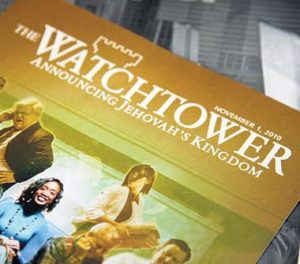“other schools saw us as targets for abuse as we walked to and from school, conveniently proving the evilness of these other schools, and further isolating us from the outside world”
 Accelerated Christian Education, normally known as ACE, is a Christian Fundamentalist system of learning and curriculum established in 1970 by Dr Donald R Howard in Tennessee. ACE describes its curriculum as “back-to-basics education … individualized to meet a student’s specific learning needs and capabilities … incorporating Scripture, Godly character building, and wisdom principles.” ACE offers the International Certificate of Christian Education (ICCE) to successful students, although some schools in the UK also offer GCSE and A-Level qualifications.
Accelerated Christian Education, normally known as ACE, is a Christian Fundamentalist system of learning and curriculum established in 1970 by Dr Donald R Howard in Tennessee. ACE describes its curriculum as “back-to-basics education … individualized to meet a student’s specific learning needs and capabilities … incorporating Scripture, Godly character building, and wisdom principles.” ACE offers the International Certificate of Christian Education (ICCE) to successful students, although some schools in the UK also offer GCSE and A-Level qualifications.
There are currently around thirty ACE schools in the Britain, and an unknown number of parents use it as a home-schooling curriculum. Worldwide, there are more six thousand ACE schools in more than 140 countries. Until the mid-nineties, I attended a school in the Home Counties which has since closed.
So, what is Accelerated Christian Education? As a question it’s both very easy to answer and very difficult: easy because facts and figures can describe it to anyone, but difficult because it’s difficult to convey the impact of the education, particularly to people for who the concepts are so alien.
Religion pervades the ACE environment. Our school was typical: run as a private school by the church, allowing them to be exclusive by only accepting the children of church members.
The day started with morning devotions or assembly, which included recitation of the Pledge of Allegiance to the Bible and the Pledge of Allegiance to the Christian Flag, a short homily or a longer-form lecture/sermon based on a Bible passage, prayer, collective recitation of a passage of Scripture, and the singing of hymns and worship songs.
Prayer was then further incorporated into the day in the form of grace at lunch, at the end of the day, and by the promotion of prayer before studying or taking a test.
We were required to memorise and recite a passage of Scripture each month, (for example, 1 Corinthians 13, or Psalm 121, which was a requirement for accession to Honour Roll (an elite group of students who got extra privileges) with failure to be able to recite the passage resulting in the student being required to stay behind after school for “Remedial Scripture” during which they are required to memorise the new month’s passage, typically through verbal or written repetition.
Needless to say, religious doctrines and beliefs were also incorporated into the school rules and discipline system, which were codified into a handbook, of which every student had a copy. For example, beliefs around modesty were key to the girl’s dress code (including the requirement that they wear uniform underwear, which would be inspected), and ideas of Christian sexual morality were enforced through the gross misconduct rules.
This strict disciplinary approach was central to the way in which we were taught, too. The emphasis was very much on self-teaching and rote learning, delivered through workbooks known as Packets of Accelerated Christian Learning (PACEs), and classrooms consisted of individual cubicles known as ‘offices’, designed to prevent pupils from interacting with one another and to promote silence and intense, completely unsustainable concentration at all times. Even when calling over members of staff (to get permission to complete a test, or mark work, or in the event that a student needed academic assistance), we had to place a small flag on a shelf on top of their office.
It’s important to know, too, that our school of around sixty students was exclusively made up of children of members of the church, who were overwhelmingly white, exclusively cisgender and heterosexual, and male-dominated. Within that context, the content of PACEs was fairly predictable.
The educational comic strips feature a number of black and minority ethnic (BAME) characters, each group of whom occupy separate schools and churches. As a result, BAME characters rarely interact with white characters, and the majority of the strips focus on the white church and school. In addition, even when teaching about different cultures in social studies, the cultures are portrayed as unsophisticated, ungodly and even demonic, sometimes to the level of the idea of the noble savage.
PACEs promote women’s subservience to the male head of the household, with rigidly defined gender roles and jobs. Women are expected to undertake housework, cooking and, if they have a career, caring professions, whilst men are expected to be career-focussed, to undertake DIY tasks and to lead the household. There is a strict code of appearance for women which is promoted in PACEs (the men’s code is restricted to hair style and requirement to wear “men’s” clothing); this code is reinforced within the school environment, with girls and women required to wear skirts and/or dresses.
PACEs state that homosexuality is a perversion of God’s plan, and that HIV can be avoided by adhering to a rigid moral code. This was also reflected in school rules, in which identifying as gay can typically result in (at best) punishment and (at worst) expulsion and/or public shaming and prayer.
ACE is an exclusively Christian system, and PACEs describe people of other faiths as worshipping demons or false gods. In addition, atheists are described as rebelling against God and seeking to undermine God’s plan for the world.
PACEs espouse political views which align themselves with right-wing conservative values, and explicitly criticise anything which is seen as left-wing or socialistic, including systems of social welfare.
Disabled characters are all-but invisible in PACEs, and when they are mentioned it tends to be in the context of the results of sin (for example, when one character injures another in a road traffic incident). The training given to Supervisors and Monitors on the subject of learning disabilities is limited at best, and promotes un-evidenced, anti-scientific and counter-productive policies which may cause harm to students.
Lastly, and there’s plenty more I could say, ACE schools are isolationist to their core. First, the church considered themselves to be the only true Christians in the area, which is why members of other churches were excluded from attendance at the school. Second, the school didn’t participate in intermural activities, and, since the students were all children of members of the same church, all socialisation was with the same limited group of young people, whether at school, youth group, Sunday school or church.
The isolation was further enhanced by the uniform, which was markedly different to that worn by pupils at all other schools in the area. This meant that the other schools saw us as targets for abuse as we walked to and from school, conveniently proving the evilness of other schools, and further isolating us from the outside world.
Anonymous

